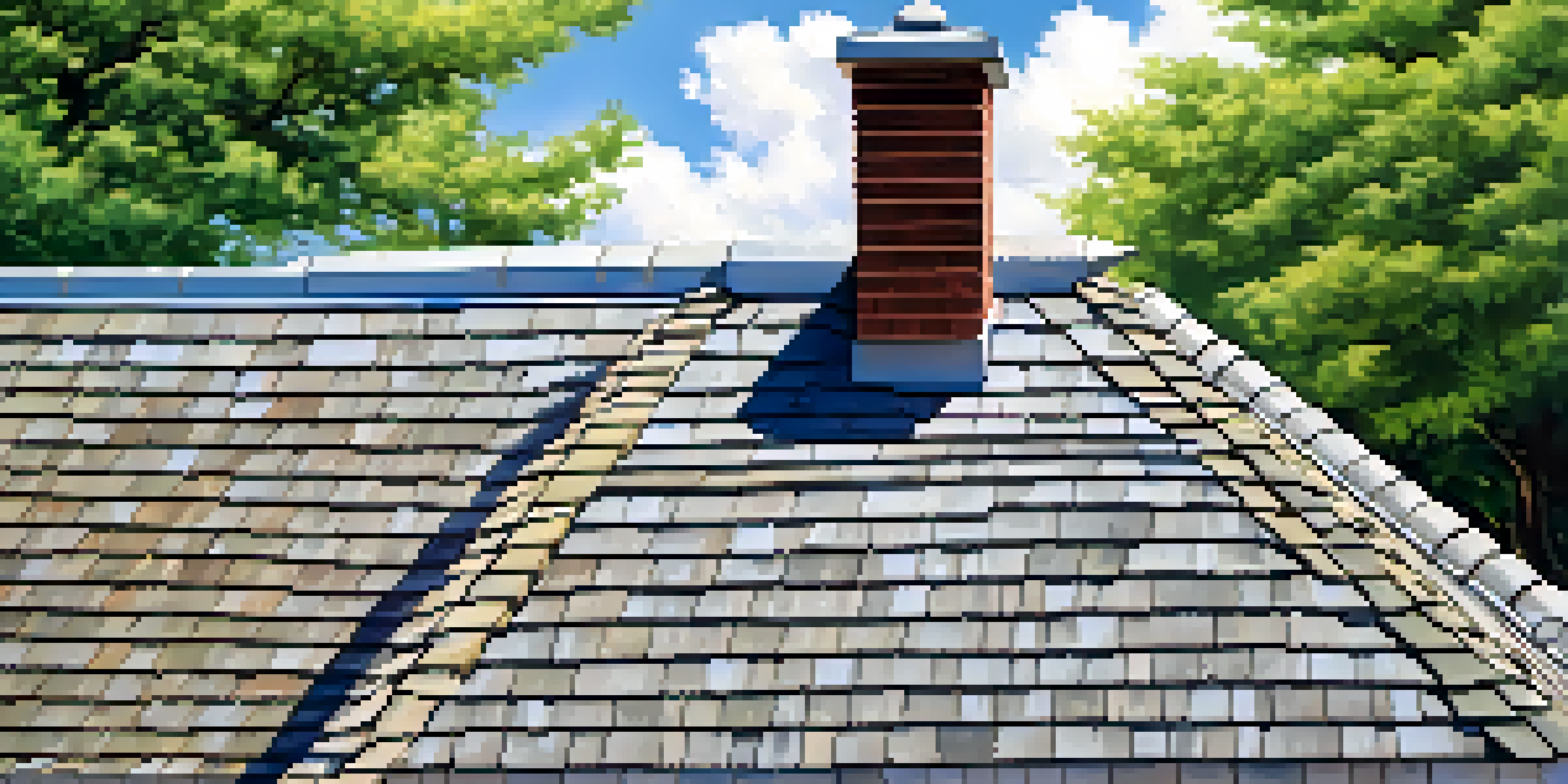Home Maintenance Tips: How to Extend Your Home's Lifespan

Regularly Inspect and Maintain Your Roof
Your roof is your home's first line of defense against the elements, so regular inspections are crucial. Look for missing shingles, rusted flashing, or signs of water damage, which can lead to costly repairs if ignored. Ideally, inspect your roof at least twice a year and after significant storms to catch any potential issues early.
An ounce of prevention is worth a pound of cure.
Consider hiring a professional for a thorough inspection, especially if your roof is older. They can spot problems that might not be visible to the untrained eye, such as underlying wear or inadequate ventilation. Remember, a well-maintained roof not only protects your home but also enhances its curb appeal.
If repairs are needed, address them promptly to avoid further deterioration. A proactive approach to roof maintenance will save you money in the long run and extend the lifespan of this essential component of your home.
Keep Gutters Clean and Functional
Clogged gutters can lead to serious water damage, so regular cleaning is key. Debris buildup can prevent rainwater from draining properly, causing it to overflow and damage your roof, siding, and foundation. Make it a habit to clean your gutters at least twice a year, or more if you have overhanging trees.

Installing gutter guards can also help minimize debris accumulation and reduce maintenance frequency. These mesh covers allow water to flow through while keeping out leaves and twigs. This small investment can save you time and protect your home from water-related issues.
Regular Roof Maintenance is Essential
Inspecting and maintaining your roof regularly can prevent costly repairs and extend its lifespan.
Additionally, regularly check for leaks or sagging in your gutters. Addressing these problems quickly can prevent more extensive repairs later on and ensure your home stays dry and safe.
Service HVAC Systems Annually
Your heating, ventilation, and air conditioning (HVAC) system is vital for comfort and air quality, making regular maintenance essential. Schedule annual check-ups with a certified technician to ensure that your system operates efficiently. This can help prevent unexpected breakdowns when you need it most, especially during extreme weather.
Home maintenance is vital to preserving your investment and keeping your family safe.
During these services, technicians will check for issues like leaks, dirty filters, and proper refrigerant levels. Keeping your HVAC system in top condition not only enhances its lifespan but also improves energy efficiency, which can lower your utility bills.
In between professional services, you can take simple steps like changing filters every one to three months and keeping vents clear. These actions can significantly prolong the life of your HVAC system while maintaining a comfortable home environment.
Seal Windows and Doors to Prevent Drafts
Drafty windows and doors can lead to increased energy costs and discomfort in your home. Sealing these gaps is a simple yet effective way to enhance energy efficiency and extend the lifespan of your heating and cooling systems. Look for signs of air leaks and consider weatherstripping or caulking to seal them up.
Regularly inspect seals around windows and doors for wear and tear. If you notice any gaps or cracks, it’s time to replace or repair the weatherstripping. This small task can make a big difference in maintaining a comfortable indoor environment and reducing energy usage.
Keep Gutters Clear for Home Protection
Maintaining clean and functional gutters prevents water damage and protects your home's structure.
Additionally, consider upgrading to energy-efficient windows and doors if your budget allows. These options not only improve insulation but can also enhance your home's aesthetic appeal and value.
Maintain Your Plumbing System
A well-maintained plumbing system is essential for the overall health of your home. Regularly check for leaks in pipes, faucets, and toilets, as even small leaks can lead to significant water damage and mold growth. Addressing these issues promptly can save you time, money, and headaches down the line.
Consider flushing your water heater annually to remove sediment buildup, which can improve efficiency and extend its lifespan. Additionally, inspect hoses and connections for wear and replace them as needed, especially if they’re older than five years.
Lastly, don’t forget about your drains! Regularly clean them to prevent clogs and backups. By adopting these plumbing maintenance habits, you can ensure a smooth-running system and protect your home from water-related problems.
Protect Your Home's Exterior
Your home's exterior is exposed to various weather conditions, making regular maintenance vital. Inspect the siding for signs of damage, such as cracks or peeling paint, and address them promptly to prevent moisture intrusion. A well-maintained exterior not only looks great but also protects your home’s structure.
Consider power washing your siding to remove dirt and mildew, followed by a fresh coat of paint or stain to enhance protection against the elements. This routine not only boosts curb appeal but also extends the life of your siding material.
Annual HVAC Service Boosts Efficiency
Scheduling annual check-ups for your HVAC system ensures optimal performance and reduces unexpected breakdowns.
Don’t overlook the importance of landscaping as well. Keep plants and trees trimmed away from your home to prevent moisture buildup and pest infestations. A well-kept exterior creates a welcoming atmosphere while ensuring your home remains structurally sound.
Regularly Test Smoke and Carbon Monoxide Detectors
Safety is paramount in maintaining your home, and that starts with functional smoke and carbon monoxide detectors. Test these devices monthly to ensure they're working properly, and replace batteries at least once a year. A small commitment to this task can save lives in emergencies.
It’s also a good idea to replace smoke detectors every 10 years and carbon monoxide detectors every five years to ensure optimal functionality. Staying proactive about these devices can give you peace of mind, knowing your family is safe from potential hazards.

Additionally, create an emergency plan that includes escape routes and meeting points. Regularly reviewing and practicing this plan with your family can enhance safety and preparedness in case of emergencies.